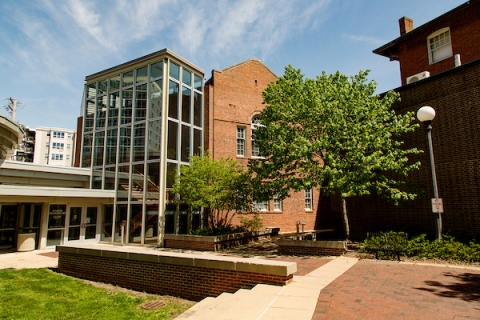You are here
Creating Adaptable Autonomous Systems for Energy-Efficient Buildings (In Progress)
Recent Project Updates
-
1/20/2022Received approval for SSC funding - got the letter and sent it back to SSC, signed. Nora requested the CFOP from OBFSNidia wants to talk with Paul about it - funding for technical engineering for F&SNidia's appointment$75k for...
-
5/12/2021Facilities & Services (F&S) is funding a 50% Research Assistantship (RA) for Civil and Environmental Engineering graduate student, Nidia Bucarelli. Nidia is working under the guidance of Professor Nora El-Gohary, and reporting to...
Project Family
-
iSEE Campus as a Living Lab (CALL) Projects
- Adaptive Aluminum Tensegrity Structure as a Bike Parking Canopy
- Addressing Community Health Disparities from Hazardous Waste
- Agrivoltaics: Crop Production and Solar Panels on the Same Land
- City Traffic as a Reservoir System
- Creating Adaptable Autonomous Systems for Energy-Efficient Buildings
- Environment-Enhancing Food, Energy, and Water Systems
- Faculty/Staff Crowdsourced Community Program
- Geothermal: Thermo-Hydraulic Properties of Glacial Tills
- I-PLACES Living Laboratory
- Integrating Groundwater Resources and Geothermal Energy for Water-Energy Security and Resilience
- Student Mobility on and around the Illinois campus
- Testing Geopolymer Performance in a Geothermal Exchange System
- Thermochemical Batteries: Turning Waste Heat into an Energy Source
- Towards Zero Waste: Automated Waste Classification via Computer Vision
- Wind Turbine/Pavilion Integration for Electricity Generation
Associated Collections
Description
A large body of research exists on robots and autonomous technology, but still little understanding of how to integrate them into everyday life. While people seem relatively comfortable with a Roomba vaccum, a subservient robot, they might be less willing to let technology assist in other areas of their living space. However, adapting technology into the home could have significantly positive benefits for the occupant.
The expertise of this research team is uniquely qualified to research and develop a robotic system that is capable of autonomously navigating to collect data on indoor air environment, observe human behaviors, and make recommendations for reducing energy and improving comfort. Campus buildings will be used as living labs.
Purpose of the Work: Campus Connection
Once this project — seed-funded by iSEE in early 2019 — is completed, it could have serious implications within residential spaces and the autonoumous tech industry. People spend a majority of their time indoors, and indoor air quality has been attributed to a number of life-quality issues. Additionally, studies have shown that behavioral changes could lead to a 16 to 20 percent savings in energy.

